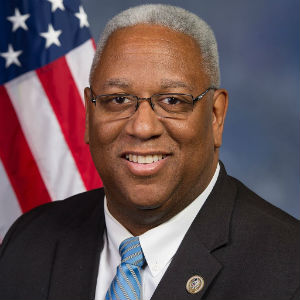
While the incidence of lead poisoning in children has diminished, regulations as they stand do not adequately prevent contact with lead and its serious detrimental health impacts. Children with lead poisoning often require long-term medical treatment and special education services, as some effects can be irreversible.
“We have a responsibility to keep our children as safe as possible,” said Congressman Donald McEachin.“One child with lead poisoning is one too many. We have an obligation to ensure that a child’s home is safe. No child should be exposed to hazards simply by living in his or her home. Lead poisoning is an avoidable tragedy and we must do what we can to prevent it. Moreover, preventing lead poisoning is cheaper and less arduous and less painful than trying to mitigate the damage to a child who has been stricken.”
“Every child should be afforded the opportunity to grow up in a home that is safe from toxins, such as lead,”said Congressman John Faso. “This is a common sense proposal that helps ensure children living in federal housing can grow up in a productive and safe environment. HUD has improved its practices, but it is necessary that Congress acts in a bipartisan manner to get this done. I am proud to join Congressman McEachin in leading House efforts to pass this bill.”
The Lead-Safe Housing for Kids Act of 2018 provides three protections for children in federally assisted housing. It prohibits the use of visual assessments in housing built before 1978, and instead requires risk assessments – a more comprehensive tool to determine presence of lead hazards. It also necessitates a process for families to relocate if a lead problem is found and the landlord does not mitigate the problem within 30 days of notification. Finally, the bill requires landlords to disclose if lead is known to be in the home.
Bill text is available here. Fact sheet is available here.
This bill has been endorsed by the Virginia Housing Alliance. The Senate companion bill has been endorsed by numerous legal, housing and health groups including the National Center for Homelessness and Poverty, the National Housing Law Project, the Coalition for Human Needs, the National Center for Medical-Legal partnership and the Sargent Shriver National Center on Poverty Law.
“We know that the children, especially those living in federally subsidized housing, who are exposed to lead-based hazards represent some of the most vulnerable citizens in Virginia and strongly support legislation that would expand lead poisoning prevention efforts,” said Sim Wimbush, Executive Director of the Virginia Housing Alliance. “No child in Virginia, or in the United States for that matter, should be caused harm simply because of where they live. No parent should have to worry about whether the air their child breathes in their own home is safe or filled with lead particles. We proudly stand with Virginia’s own Representative McEachin to ensure that children and their families are safe from the threat of lead exposure in their homes.”
“I am pleased that this bill has a companion in the Senate and I also want to thank Congressman Faso for joining me, added Congressman McEachin. “In light of National Healthy Homes Month, I call on the majority to bring this important, life-saving legislation up for a vote—and to begin that process before we leave for our district work week.”










